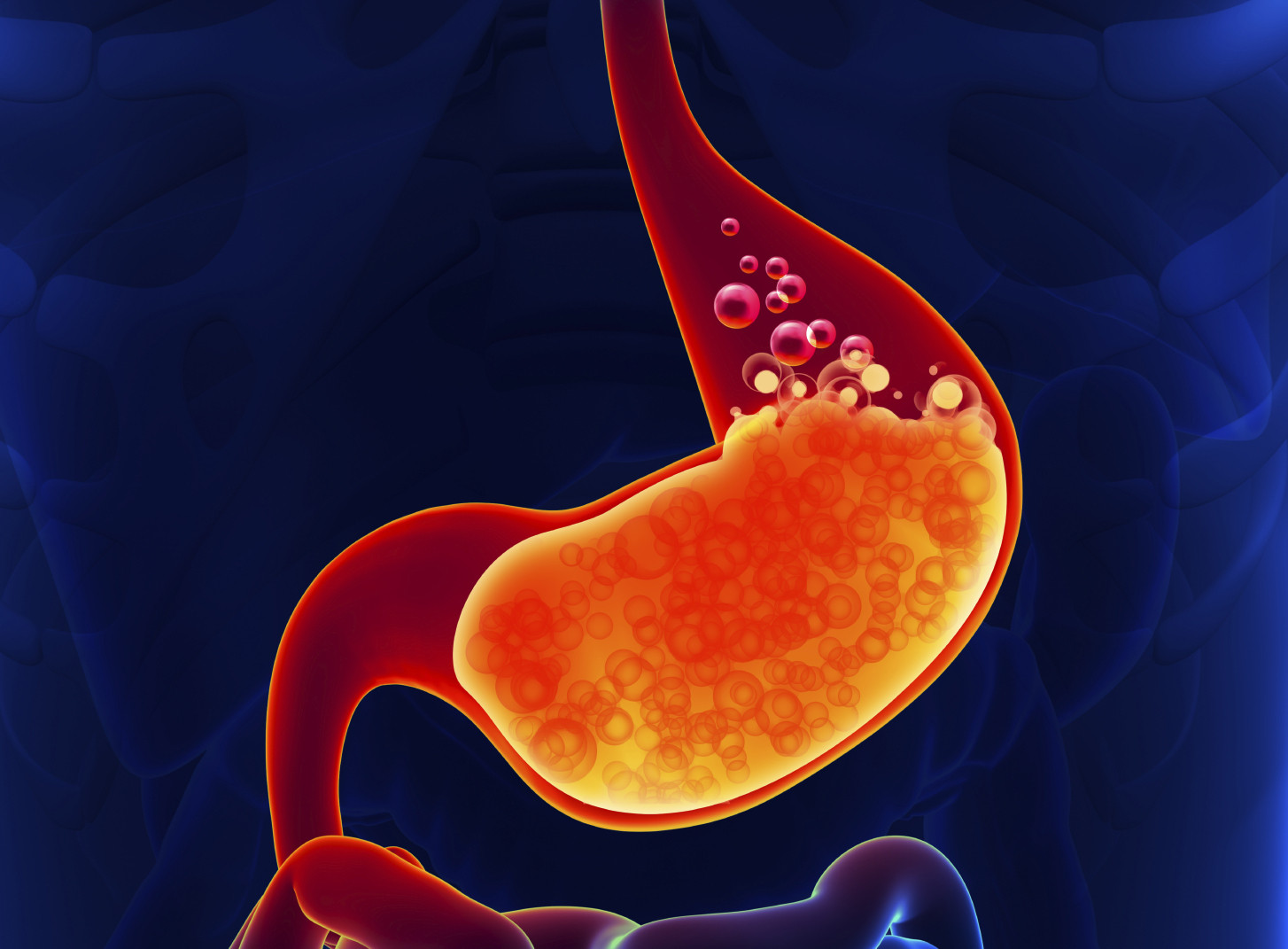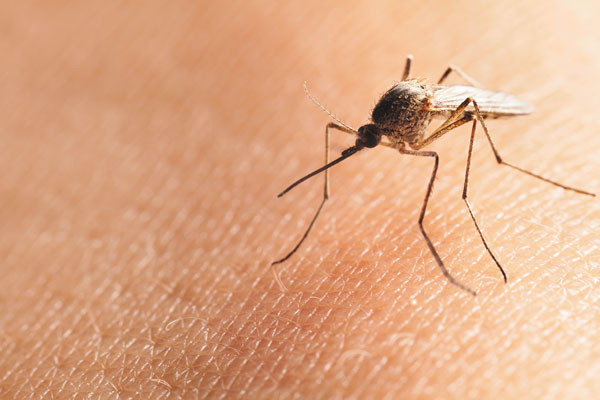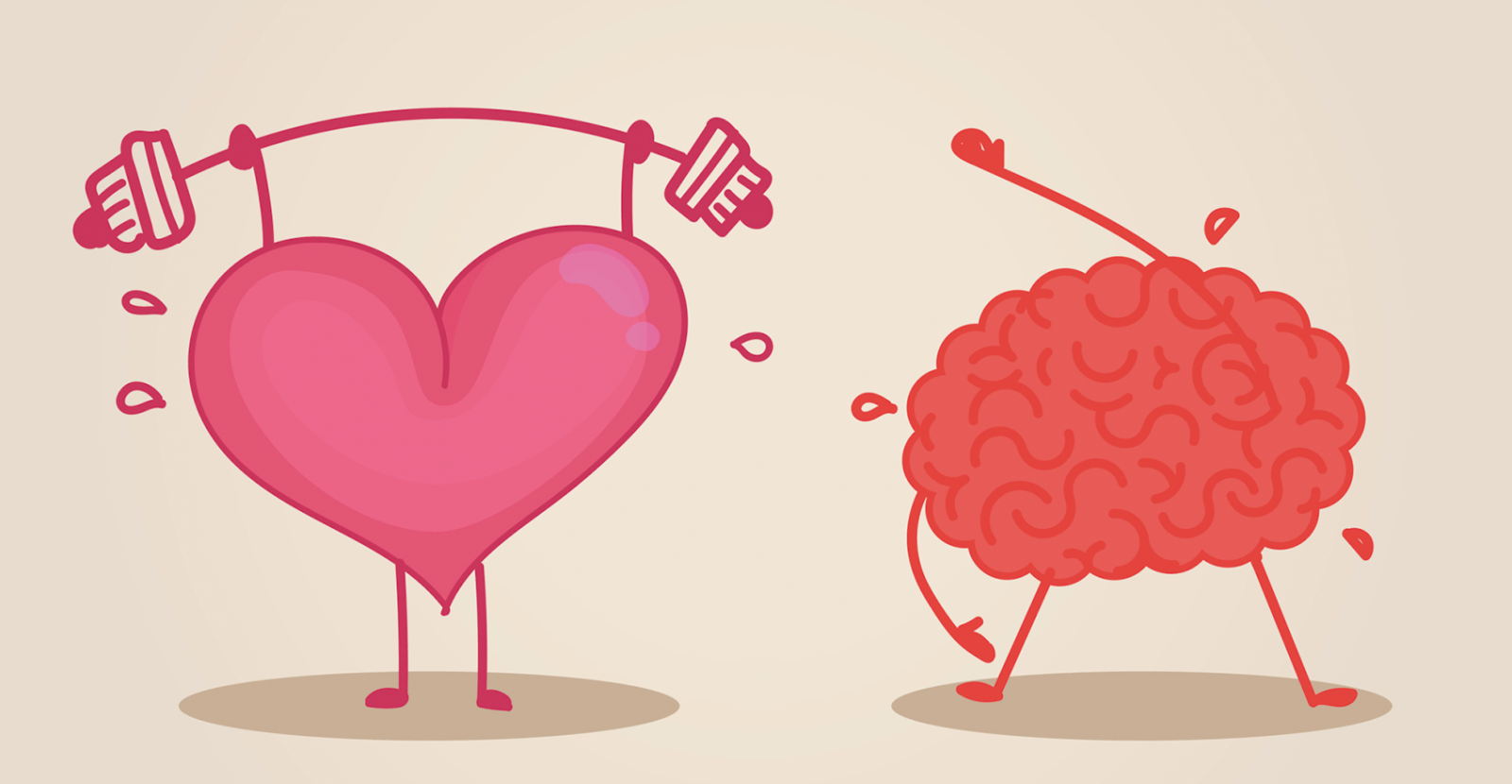
Tips to leverage neuroplasticity to maintain cognitive fitness as you age

Can white noise really help you sleep better?

Celiac disease: Exploring four myths

What is prostatitis and how is it treated?

What is Cushing syndrome?

Exercises to relieve joint pain

Think your child has ADHD? What your pediatrician can do

Foam roller: Could you benefit from this massage tool?

Stepping up activity if winter slowed you down

Common causes of cloudy urine
Staying Healthy Archive
Articles
8 ways to quell the fire of heartburn
Heartburn is a common problem. It's caused by the backwash of stomach acid into the esophagus, the tube connecting the mouth and stomach. This is formally called gastroesophageal reflux disease (GERD). More than just a minor discomfort, heartburn can significantly reduce quality of life. "Heartburn can cause damage to the esophagus and even increase the risk of cancer if ignored and untreated," says Dr. William Kormos, editor in chief of Harvard Men's Health Watch and a primary care physician at Massachusetts General Hospital.
These eight steps can help ease heartburn.
- Eat in a heartburn-smart way. Large meals put pressure on the muscle that normally helps keep stomach contents from backing up into the esophagus. The more you eat, the longer it takes for the stomach to empty, which contributes to reflux. Try smaller, more frequent meals — and don't wolf down your food.
- Avoid late-night eating. Having a meal or snack within three hours of lying down to sleep can worsen reflux, causing heartburn. Leave enough time for the stomach to clear out.
- Don't exercise right after meals. Give your stomach time to empty; wait a couple of hours. But don't just lie down either, which will worsen reflux.
- Sleep on an incline. Raising your torso up a bit with a wedge-shaped cushion may ease nighttime heartburn. Wedges are available from medical supply companies and some home goods stores. Don't just prop your head and shoulders up with regular pillows — doing so can actually increase pressure on the stomach by curling you up at the waist.
- Identify and avoid foods associated with heartburn. Common offenders include fatty foods, spicy foods, tomatoes, garlic, milk, coffee, tea, cola, peppermint, and chocolate. Carbonated beverages cause belching, which also causes reflux.
- Chew sugarless gum after a meal. Chewing gum promotes salivation, which helps neutralize acid, soothes the esophagus, and washes acid back down to the stomach. But avoid peppermint-flavored gum, which may trigger heartburn more than other flavors.
- Rule out medication side effects. Ask your doctor or pharmacist whether any of the medications you take might cause pain resembling heartburn or contribute to reflux.
- Lose weight if you need to. Being overweight puts more pressure on the stomach and pushes stomach contents into the esophagus. The tight-fitting clothing and belts that come with weight gain may also be a factor.
For more on relieving heartburn and treating a sensitive gut, purchase The Sensitive Gut by Harvard Medical School.
Launch your workout plan: Getting motivated and setting goals
There is no question that regular exercise is essential to good health. That fact alone is enough motivation for some folks. For others, setting meaningful personal goals — whether it's finishing a 10K race or getting back into those jeans you love — and keying into what motivates you can help launch a successful workout program.
Motivation takes many forms, so find the carrot (or stick) that works for you. Maybe you'd like to get ready to tackle new activities, like climbing a towering rock wall, churning through the water during a triathlon, or making it 26.2 miles in a marathon. Perhaps you just hope to feel fit and good about your body. Maybe a friendly bet with a spouse or friend — loser pays for kayaking lessons — or wanting to hold up your end of the bargain with a new exercise partner will do the trick.
Are we prepared for epidemics?
Mosquitoes can transmit many viruses, such as, Zika, West Nile, dengue, and yellow fever.
Image: Thinkstock
Ask the Doctor
Q. Why is it that we suddenly have epidemics of things like Zika virus that we've never heard about, and that we have no treatments or vaccines for? It feels like we should be better prepared than we apparently are. This worries me more than terrorism.
Danger-proof your walking routine
Address vision, hearing, physical, and logistical problems before you head out the door.
Image: Thinkstock
Now that spring is here, you may be going back outside to walk. But don't take your walking routine lightly. While walking is a simple and effective exercise, it can put you at risk for falls and other injuries. As a result, physical and environmental dangers may turn a walk outside into a trip to the hospital, sabotaging your good intentions to stay healthy. Consider the following hazards and fixes before you start walking.
Hazard: Gait and stability problems
Causes: Back, hip, knee, ankle, or foot pain; muscle weakness; imbalance from neurological conditions such as Parkinson's disease; dizziness from inner ear conditions; vision problems; or a combination of these.
Harvard researchers: Fight glaucoma with leafy green vegetables
Image: Thinkstock
Think about this the next time you fill your plate with kale or spinach: a study published in JAMA Ophthalmology Jan. 14, 2016, found that boosting leafy green vegetable intake is associated with a reduced risk of developing glaucoma, a leading cause of blindness.
Harvard researchers analyzed the dietary information reported by more than 100,000 men and women in two long-term studies, each lasting more than 25 years. Those who ate the most leafy greens had a risk of developing glaucoma that was 20% to 30% lower than that of those who ate the least. What's the link? Glaucoma causes damage to the optic nerve, through increased pressure from fluid in the eye or impaired blood flow to the optic nerve. Leafy greens are loaded with nitrate, which the body converts to nitric oxide. "Nitric oxide is important for maintaining optimal blood flow, and possibly for keeping eye pressure low," speculates Dr. Jae Hee Kang, the lead author of the study and a Harvard Medical School assistant professor. The study doesn't prove that leafy greens reduce glaucoma risk; it only shows an association between the two. Eating leafy greens is also linked to lower rates of inflammation, cancer, heart disease, and even macular degeneration.
A stronger heart may help keep your brain young
New findings link cardiovascular fitness to better thinking skills and memory in older people.
Image: Thinkstock
Exercise that speeds up your heart rate and breathing keeps your heart and blood better cardiovascular fitness to a sharper brain is providing new clues about this heart-mind connection.
"It's not just about delivering more oxygen to the brain, although that's part of it," says Dr. John Ratey, associate clinical professor of psychiatry at Harvard Medical School and author of Spark: The Revolutionary New Science of Exercise and the Brain. Having a fit, healthy cardiovascular system also protects against vascular dementia, which happens when blood vessels feeding the brain are blocked or narrowed, leading to memory problems and other cognitive trouble.
Mediterranean diet beats low-fat diet for long-term weight loss
Image: Bigstock
The popular eating pattern that's good for your heart—the Mediterranean diet—is also good for your waistline, according to a review of five studies that compared the Mediterranean diet with other weight-loss diets.
The trials, which included a total of 998 overweight or obese people, pitted the Mediterranean diet (which is rich in vegetables, fruits, grains, beans, and olive oil but light on meat, dairy, and eggs) against one or more of three other diets: a low-fat diet, a low-carb diet, and the American Diabetes Association (ADA) diet.
Caffeine unlikely to trigger palpitations in healthy people
Drinking caffeinated coffee or tea may help you feel more awake and alert. But for healthy people, it probably won't cause palpitations—a noticeably strong, fast, or irregular heart beat. That's according to a new study of nearly 1,400 older adults in the Jan. 26, 2016, Journal of the American Heart Association.
Researchers relied on data from food questionnaires and Holter monitors, which recorded each participant's heart rhythm for a 24-hour period. About 60% of the people in the study said they consumed more than one caffeinated product (coffee, tea, or chocolate) a day. People who consumed more of those products were no more likely to have palpitations than those who imbibed less, the authors found.
What's new in nutritional guidelines?
The USDA recently updated its recommendations for healthy eating. Here are the takeaway messages for men.
Images: Thinkstock
Every five years, the USDA releases its Dietary Guidelines for Americans—advice to encourage healthier eating patterns based on the latest nutritional science.
"While there is a lot of nutritional information out there, the guidelines are the foundation for many government food programs, and many men can benefit from their recommendations," says Katherine McManus, director of the Department of Nutrition at Harvard-affiliated Brigham and Women's Hospital.
Are artificial sweeteners safe?
Ask the doctor
Image: Thinkstock
Q: My doctor advised me to give up my soda habit, but I was thinking about switching to diet soda. What is your advice about the safety of artificial sweeteners?
A: I support your decision to decrease the amount of added sugar in your diet, but it is less clear if artificial sweeteners are the answer. These sugar substitutes do appear to be safe when consumed in usual amounts. Initial studies in rats, performed decades ago, raised a possible link to bladder cancer, but no subsequent studies in humans have confirmed this relationship.

Tips to leverage neuroplasticity to maintain cognitive fitness as you age

Can white noise really help you sleep better?

Celiac disease: Exploring four myths

What is prostatitis and how is it treated?

What is Cushing syndrome?

Exercises to relieve joint pain

Think your child has ADHD? What your pediatrician can do

Foam roller: Could you benefit from this massage tool?

Stepping up activity if winter slowed you down

Common causes of cloudy urine
Free Healthbeat Signup
Get the latest in health news delivered to your inbox!
Sign Up











